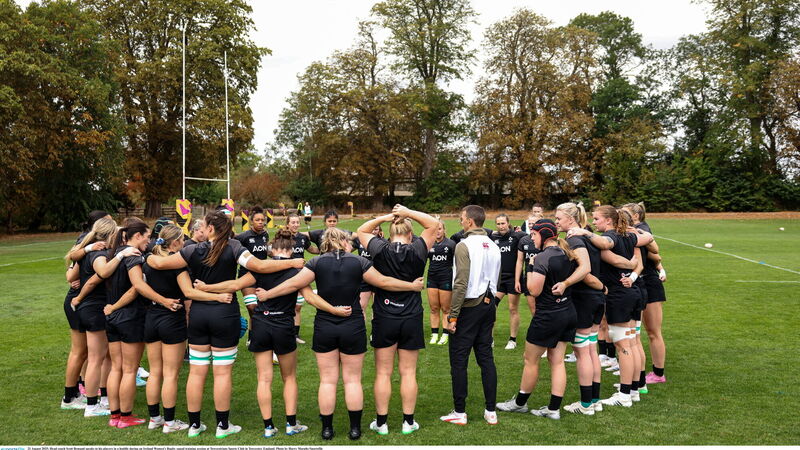Irish Examiner view: Success that depends on the 'big girls going well'

Head coach Scott Bemand speaks to his players in a huddle during an Ireland Women's Rugby squad training session at Towcestrians Sports Club in Towcester, England. Picture: Harry Murphy/Sportsfile
Rugby is a simple game, observed a women’s Rugby World Cup-winning captain this week, “if the big girls go well and the half-backs control the game.”
That beguiling and straightforward recipe for international success will be put to the test for the next six weekends at eight grounds across England when the women’s game achieves an enthralling and high-profile platform in the 10th World Cup since the United States won the first tournament in 1991.















